How to Improve Energy Efficiency and Save Electricity Costs
With the ever growing temperatures and the persistent humidity, ACs have become a necessity today; as have the room heaters with the chilling temperatures of winters.
And while these make living easier, they do increase the cost of living. The ever increasing electricity rates don’t help the bills either.
There sure are the green methods to lower the electricity bills, for e.g., LED light sources, the energy efficient appliances, and the latest, solar power; and then there are also some easy tricks and minor adjustments in the way we use our appliances which can help cut down the energy costs. These don’t require an immediate big change or investment, and yet help cut down on the costs.
- Air Conditioners: Ensuring properly clean and dust/blockage free vents ensure better cooling n lesser power consumption.
- Washing Machines: Ideally, the machine can be packed with as many clothes as can fit in, but practically, that is not advisable. Especially if the drier has to be used later. The drier seems to work better with about 20-25% lesser load. That ensures better cleaning/drying, and no over-loading of the machine too. As far as possible, washing the clothes in cold water reduces the power requirements. Heating the water in the machine, tends to use the maximum energy. Washing with cold water also has the advantage of lesser probability of colour running off of the clothes.
- Computers and TV set: Always powered on computers, TVs, music systems and phone chargers contribute a lot of unaccounted units in the bills. Ensuring to switch them off when not in use, definitely cuts down at least a small portion of the bill.
- Setting sleep mode and hibernate, to reduce the power consumption during inactive periods, is also a great help.
- Screensavers, as beautiful as they look, unlike the general perception, don’t save energy, instead, they use more. Setting off the monitor after a few minutes of being idle, is a wiser choice with respect to power saving.
- Unplug: Though we don’t realise it, but unplugging the devices that are seldom used, can actually save us a bit.
- Ovens: Peeking inside the oven frequently, lets out the heat, causing more power consumption for the same amount of cooking.
- Dishwashers: By the same logic as washing machine, turning down the heat to minimum required would help save some energy consumption.
Also stacking up the dishwasher efficiently increases the efficiency, and reduces the power consumption for reruns.
Suggested Articles
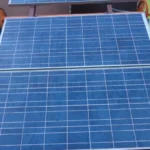
Rooftop Solar for Factories: Maximum kW You Can Install
Industrial rooftop solar guide: Understand KW capacity limits, installation guidelines, and best practices for factories and manufacturing units
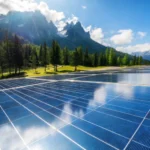
US Lawmakers Approve Tariffs on Solar Imports from Southeast Asia
US lawmakers vote to restore tariffs on solar imports from Southeast Asia, affecting pricing, supply, and the solar industry landscape.
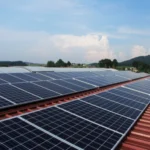
पीएम सूर्य घर योजना 2025 – मुफ्त बिजली पाने के लिए ऐसे करें आवेदन
पीएम सूर्य घर योजना ऑनलाइन आवेदन 2025: मुफ्त बिजली पाने की आसान स्टेप-बाय-स्टेप प्रक्रिया यहाँ पढ़ें।

Solar Net Metering in Industrial Units: Opportunities and Risks
Solar net metering can help factories save on energy costs, but there are key pitfalls to consider. Learn the challenges and best practices for industrial adoption

Latest MNRE List: Approved Solar Module Manufacturers
Check the latest MNRE-approved list of solar module manufacturers to ensure quality and compliance for your solar projects in India.
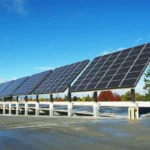
Guide to Selecting Right Solar Panels for Your Home or Factory
Solar panels are a hot topic these days, as the cost of solar is finally approaching what the average family can afford.
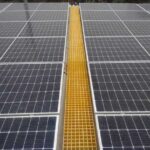
Case Study: Successful Design, Installation, and Commissioning of a 50 kWp Rooftop Solar PV Plant
This case study details our experience in designing, installing, and commissioning a 50 kWp solar PV rooftop power plant. Learn how we overcame technical challenges, optimized system performance, and delivered clean, reliable energy. Discover insights on panel selection, inverter sizing, monitoring, and commissioning processes that ensured maximum efficiency and long-term performance for the rooftop solar installation.

India and IMT-GT JBC Sign MoU to Boost Energy Efficiency in Southeast Asia
The first meeting of the G20 Energy Transitions Working Group was held in Bengaluru, India, and was a success, with participants sharing a consensus on the priority areas of energy security and diversified supply chains.
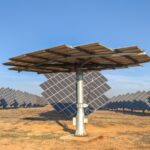
6 Innovative Applications of Solar Energy You Should Know About
Explore six cutting-edge ways solar energy is transforming our world, from powering homes and businesses to driving sustainable technology innovations.
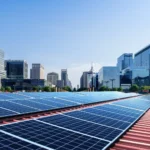
UP Government Incentive: Stamp Duty Exemption for Solar Land
Uttar Pradesh offers stamp duty exemption on land for solar projects, encouraging investment and growth in renewable energy.